#➤ roger collins. ┊ i and my ghosts want a drink.
Text
Dark Shadows 1966 Episode Revisions - Episode 0001
When my creativity spells run dry for one fandom, I sometimes switch around. There are basically three on my docket, so I eventually cycle through back to each. Currently, though, I'm on Dark Shadows (1966).
This is my attempt to revise the original series' events with a stable continuity. It's heavily based on the series; basically, a novelization, since I've been trying to keep the dialogue true to the original despite adding my own touches. Eventually, I'll write my own version; this is basically as much my in-depth study of the series as a fan-rewrite. Other than the videos, my main source is the Robservations posts on dsboards.com; from reading them, I discovered I like the present tense in this context and am trying to keep true to it.
Please note: This is a very rough draft.
All credits to Dan Curtis and his estate.
Episode 1
My name is Victoria Winters. My journey is beginning--a journey that I hope will open the doors of life to me and link my past with my future.
The young woman looks up from her notebook, and glances out the window. It is past midnight; a quarter moon skims the treetops, but whatever scenery might lie below is lost in inky black. She can see her reflection in the window, and those of other passengers. She returns to her notebook.
"A journey that will bring me to a strange, dark place to the edge of the sea high atop Widows' Hill--a house called Collinwood a world I've never known, with people I've never met--people who tonight are still only shadows in my mind, but who will soon fill the days and nights of my tomorrows."
><><><><><><><><><><><><><><><><><><><><><><><><><><><><><><><><><
Roger Collins pours a drink and, staring into the fire, downs the shot. He observes Elizabeth, his older sister, staring out the window, and remarks, "A watched pot never boils, to coin a phrase."
“Don’t you think you ought to look in on your son?” comes the sour reply.
“The little monster is asleep, and I’m delighted,” he says jauntily. At her angry look, he retorts, “I choose my words with infinite precision.”
“You're a fool,” she says.
“Not one tenth the fool you are,” he accuses back. “Look at you, standing at the window looking out into the night, looking for someone who never should have been asked to come here in the first place!”
“She'll work out very well, I'm sure,” says Liz.
“Doing what?” he demands. “Holding my little son's hand? Comforting you when the shutters creak? Elizabeth, with all our ghosts, we don't need any strangers in this house, and you know it.”
“I think I can be the judge of that,” she says.
“But you don't even know the girl,” he reasons. “I'm your brother, and I'm thinking only of your own welfare. Why bring somebody all the way up from New York to do something we are perfectly capable of handling ourselves?”
“Because I choose to do so,” she retorts.
“Come to your senses,” he says, annoyed. “When the girl arrives, give her a month's salary and tell her to go back where she came from. Or,” he chides, “Why don't you just open the doors and let the whole town come trooping through the house and be done with it?”
“The girl will stay,” states Liz, striding away from the window.
“You are a fool,” he says. “Yes, you are, inviting problems...”
“The only problem I've invited is standing before me at this moment,” she says coldly. “I have asked Miss Winters to live here and here she will stay.” Roger mockingly toasts her with his glass as she opens the double doors to the room and glides into the adjacent foyer.
><><><><><><><><><><><><><><><><><><><><><><><><><><><><><><><><><
The conductor passes through the car collecting tickets. “We’ll be arriving in Collinsport in ten minutes, Mr. Devlin,” he reminds the tall man sitting closest to the door. The man ignores him, lost in thought. Undeterred, the conductor makes his way to Vicki. "We'll be at Collinsport in ten minutes, Miss."
Vicki looks up from her notebook. “Thank you.”
“Better have your baggage ready,” he warns. “With only two of you getting off here, it won't be a long stop.” He walks away.
“It doesn't sound like much of a place, does it?” Vicki remarks to the lady sitting next to her.
She snorts. “There hasn't been a stop there in five years, that’s what kind of a place it is. The kind where nobody leaves, nobody comes—willingly—and anyone who can will leave—nobody wants to be there once the summer ends. You’d be hard pressed to find a visitor at this time of year. Why are you going there, anyway?”
“I’m hoping to take up on a job offer,” Vicki answers.
“What kind of job would bring a girl like you all the way out here?” the woman asks, smelling gossip. “Let me tell you something. I’ve been living in this part of the country all my life and I’ve heard the stories—oh, yes, there’s stories,” she emphasizes, against Vicky’s disbelieving look. “They say the whole place is a danger to anyone who stays there. Now, I’m not one to believe in such things, but I’ve only been in Collinsport once—just once—and that was more than enough to convince me!”
Vicki has slipped a letter out of her purse and begun reading it. Her memory drifts away to another time with the letter…
An older woman office sits across the desk from Vicky, reading the letter aloud. “‘Elizabeth Collins Stoddard, Collinsport, Maine.’ I'm sorry, Victoria, that name doesn't mean anything to me. When did you get this letter?”
“This morning, Mrs. Hopewell,” Vicki replies, “I don't know why she should offer me the position; I've never heard of the woman.”
“Obviously she's heard of you,” says the matron.
“But how?” asks Vicki.
“I wouldn't know,” she replies.
“Are you sure?” Vicki presses.
Crossly, the older woman replies, “Oh, Vicki, I've already told you”, the other woman says.
“I've looked at a map,” says Vicki. “Collinsport is only 50 miles from Bangor.”
“I see.” The other woman raises her eyebrows, understanding but skeptical of something. “Surely you don't think there's any connection?”
“I don't know what to think,” says Vicki, rising from the chair. “All I do know is I've spent most of my life here in the foundling home, living, working now, and suddenly I get a letter from a woman I've never seen, living in a place I've never heard of—wouldn’t you say that's a little bit strange?”
“What I would say is,” she replies, “is that you have an offer of a job as a companion and governess—at a very fair rate of pay, I might add. The only question you have to answer is: do you want to take the position?” Mrs. Hopewell hands her back the letter. Vicki takes it and gazes down at it.
When Vicki returns to reality, her seatmate is still trying to dissuade her from going. “You might not like a small town after living in New York City, either. You're so young! What would you do? Pray?” She trails off, finally realizing she has lost her audience. “You haven’t listened to a word I’ve said!”
Vicki, staring at the passing countryside, turns to look at the woman. “I’m sorry; I was daydreaming.”
“I was asking you,” the other woman repeats, “what are you going to do for fun?”
“Next stop, Collinsport,” calls the conductor, moving through the car.
“Oh my goodness!” exclaims Vicki, rising to get her suitcase from the overhead rack.
“Need help?” the lady asks.
“Oh, no, I don’t need any help.”
“Well, goodbye, then.”
“Goodbye.” Vicky turns to walk away, when the other woman adds, “Oh, Miss, good luck!”
Mr. Devlin stands, too, puts on his coat and takes down his suitcase and briefcase.
Vicki steps down the ladder, bag in hand, and stands on the platform, looking around. It is too dark to see much, but a floodlight illuminates a sign: "Welcome to Collinsport. Pop. 3000." Someone seems to have scratched peace signs into the "o"s.
A whistle rings out. Vicki turns around, and watches as the train leaves the station. Now what do I do? From the corner of her eye, she spies the tall man from before standing by the rail. Relieved not to be the only human around, she walks over. “Do you know if they have any taxis here?” she asks.
“I wouldn't know what they have here—not anymore, anyways,” he replies dismissively.
“So you’ve been here before? Then how can they expect anybody to get to town?” she asks him.
“Broomsticks and unicorns,” he answers in jest, “and chauffeured cars,” he adds as Vicky notices one pulling up behind him. “Can I give you a lift?” he offers. “I can take you to the hotel—you’ll get a taxi there, if there is one.”
“That's very kind of you, Mr...?” Vicky trails off, realizing awkwardly that she doesn’t know his name.
“Devlin,” he replies. “Burke Devlin.”
The oil baron? Vicky holds her tongue on that thought, and reciprocates. “I’m Victoria Winters.”
“Well, then, Miss Winters,” he says, matching her formal tone. “Welcome to the beginning and the end of the world.”
She smiles. “I’m afraid I’m not going that far—only to a house called Collinwood—do you know it?” She notes, surprised, as he develops an odd expression on his face.
“Yes, I do.” Nervously, Vicky concludes that it must be a very touchy subject for him. Why? “Very well, shall we go?” They walk to his car, and both get into the back seat.
The car pulls up in front of the Collinsport Inn, and the chauffeur helps Burke and Vicki out of the car.
Burke gazes around the lobby, observing, “It hasn't changed a bit.” He blinks; while he had been admiring the scenery, Vicky had stridden over to the front desk. “Do you still want a taxi?”
In response she asks rhetorically, “How else can I get to Collinwood?”
“You can take my advice,” he says seriously, “take the next bus to Bangor—get a train there for New York and be home by morning.”
“Thanks,” she says dryly, “but I'll settle for the taxi.” He huffs, evidently displeased, and rings the bell on the desk.
“Coming!” Vicky follows the voice to a wide door on the left, exited by a slightly balding man. “Sorry about that, folks,” the clerk explains. “Just getting a cup of coffee.”
“My name's Devlin,” says Burke.
“What?” The clerk’s face lights up, recognizing the name. “Why Burke,” he explodes enthusiastically, “it’s nice to see you!”
“Burke Devlin!” Burke repeats angrily, ignoring the other man’s welcome. With trepidation, Vicky wonders what bad blood runs between them. “I wired for three rooms.”
“Yes sir,” says the clerk, his expression dulling. “Oh yes, we’re expecting you. Your rooms are ready; I think I have a message for you.”
“And I want a taxi for this girl,” orders Burke.
“Sorry, but I don’t think that will be possible for a while—Harry—you know Harry,” he reminds Burke hopefully, trying to seek some recognition of someone out of the man.
“I don't know anyone,” interjects Devlin nastily. Victoria notes how his sudden flicker of hope fades out, and files the words of the rejection in the back of her head. Apparently, this Devlin guy wasn’t very discriminate with his bad mood. What’s with him?
“Harry Jones,” the clerk reiterates dejectedly, “he runs our taxi, he's got a flat and is getting it fixed.”
“The only one in Collinsport?” Vicky asks, incredulous.
The clerk smiled. “Yes, Miss; no need for more than one here.”
“How long will that take?” Burke butts in.
The clerk starts to speak, but Vicki, sensing the tension, assures both of them that “I don’t mind waiting—I’m sure it won't take too long.”
“Thank you, Miss,” says the clerk, relieved.
Vicki, trying to placate the implacable for the poor clerk, tries to reason with Burke. “I’ve come this far; I can wait another few minutes.”
“If you want to,” says Burke, skeptical. The clerk hands him a message, not bothering to speak.
“Why don’t you go over to the coffee shop? I’ll let you know when your taxi’s here.” He directs her over to the door from whence he came, Vicky thanking him for his kindness.
Before she could exit the room, however, the man—Burke—crumpled up the message, demanding, “When was this left here?”
“About an hour ago.”
Burke hands him some bills. “The red suitcase is the girl’s; the black ones go upstairs.” With that, he leaves the Inn. The clerk looks down at the money.
“What a strange man,” says Vicki. “You know him, don't you?”
The clerk nods. “Yes, since he was just this high.” With his hands, he indicates a child’s height. After a moment’s reflection, his hands go back into his pockets, and sighs, looking away. “He sure has changed.”
><><><><><><><><><><><><><><><><><><><><><><><><><><><><><><><><><
At an old bar, a man paces the bar, beer in hand, hat on head, while other patrons sit at the bar, enjoying drinks. Seeing something out the window, the man sits down at a table. Devlin enters and strides toward him. “Hello, Mr. Devlin,” says he, “and have a seat. Bring another beer for my friend,” he directs the bartender.
“I’m not interested.” The bartender nods, leaving the men alone. Burke waits a moment, then says, “You were supposed to meet me at the hotel, Strake.”
“Come on,” says Strake, smoking a cigarette, “you pay me for my work and I do it—don’t begrudge a man the chance to buy his employer a drink.”
“Let's find out what I’m paying you for,” Burke says curtly.
“Fair enough,” nods Strake, taking a paper out of his coat pocket. “I should charge you double the way these people clam up—where do you want me to start?”
Burke is silent when Bob Rooney, the bartender, comes to the table. “He's a nice fella,” says Strake, smiling at Burke's discomfiture. “He thinks I’m a secret agent for the FBI posing as real estate salesman, that’s a laugh, isn't it? Can’t seem to think of anything less complicated, these people. Anyway, he says this joint really starts jumping in about half an hour when the kids get here.”
“Suppose you get started,” growls an impatient Burke. “I want to know everything you have on the Collins family—everyone who lives in that house on the hill—and anyone who has anything to do with them.”
“Then can I go back home to New York?” asks Strake.
“Start talking,” orders Burke.
><><><><><><><><><><><><><><><><><><><><><><><><><><><><><><><><><
Back at the in, the clerk enters the restaurant and looks in on Vicki, has taken a seat at the counter. Overhearing the waitress on shift—one Maggie Evans—list off “one roast beef sandwich, rare, and a coffee, plain,” setting the food down before the newcomer, he nodded, satisfied; not only was Maggie the type who would make sure anyone who could eat would eat, and if not, try to remedy the problem, but she—or any other bored waitress on the night shift—would be certain to fill in newcomers on anything they want to know. The system prevented a lot of questions from being asked later, and gave Henry a chance to get that darn old car—which had been deemed unfixable by the garage five years previous—started. He chuckles, and quietly shuts the door.
“Thank goodness; I’m starved,” says Vicki.
“You’re also a jerk,” says Maggie Evans.
Vicki stares at her, appalled. “I beg your pardon?”
“Jerk,” repeats Maggie. “J.E.R.K. Or so the gossip mill says.” She shrugs, the hostility melting away into wariness. “People in this town don’t like strangers, especially those who come here to take up on jobs—we got enough unemployed here for most of the year that much of the town sees jobseekers as a personal insult. I thought I’d warn you.”
“Well, thanks,” says Vicki.
“Don't mention it,” the waitress says dismissively. “I’m Maggie Evans, and right now I’m the last link in a long string of gossip—the sandwich rare enough for you?”
“It’s fine,” says Vicki, bemused, “but I still don't understand.”
“The gossip mill? Don’t try. But it goes kinda like this,” says Maggie, “the chauffeur tells the desk clerk, who tells a housekeeper, who tells me and the minister’s wife that you're going to work up at Collinwood—and that makes you a jerk. And everyone knows it, because old Mrs. Turner can’t keep her flap shut.”
“But why?” asks Vicki, still confused.
“Easy,” relates Maggie. “The Collins family is the foundation of the town—Check the name. It’s called “Collin’s-port” for a reason. They live in this big old house at the top of Widow’s Hill—some name, huh? They got legends about that, too—and for a long time, they had quite a few families working up there. They let them go, a few decades ago, and they had to go elsewhere. Almost the entire town felt it; all the full-timers but some real newcomers are all related. So, whenever someone goes to work at Collinwood, there’s easy bad blood against them. And someone from outside of town…” She shakes her head. “It won’t be pretty. Or so we think; you’re the first of your kind. Maybe you’ll be pitied, instead.”
Vicki looks at her questioningly. “‘Pitied’? Why would I be?”
Maggie shrugs. “The Collins clan is the foundation of the town, yes—they built it, been here ever since, are the single biggest employer so everyone is related to someone who works for them, they own the biggest cannery, the biggest fishing fleet, and live in the biggest, darkest, gloomiest old house—but they’re so full of kooks, the state placed a sanitarium right nearby!”
“I don't believe that,” says Vicki.
Maggie chuckles. “Check the map—it’s on there. Windcliff.” Victoria stared; she didn’t expect evidence! Nor did she expect the waitress to shrug and say, “Okay, move in there, but take a good look in that mirror right now—because in two months that pretty hair of yours is going to be one glorious shade of gray!”
Vicki grins and shakes her head. “You make it sound like some old English novel with rattling chains, ghosts in the corridors…”
“You think that's wrong?” asks Maggie; “I could tell you things about that house that would rock you from here all the way back to the railroad station.”
“I'd rather not hear them,” says Vicki.
“And I’d rather not tell them,” says Maggie, “but you do need to be warned.”
“I don’t like to judge by heresay,” Vicky says; Maggie sighs.
“Ok,” she says, turning away from Vicky, muttering, “There’s one born every minute.” She turns around, and lands another plate before Vicky. “But you are going to need your strength—apple pie on the house, and I won’t take no for an answer.”
“I’ll say yes to that,” Vicki says, and sits there, thinking pensively, checking her hair in the mirror, and remembers…
She was still at the foundling home, packing to leave, when her roommate asked her, “What are you trying to do, bury yourself?”
“Just the opposite,” Vicki replied.
“With your looks and brains, you could get a dozen jobs you want, right here in New York—hey, that's my slip you're packing!”
“Sorry.” Vicky returns the item to the girl, and returns to her preparations. “It’s not the job, Sandy, it's the place.”
“You’ve got a yen for fishing villages?” asks Sandy. “So go out to Long Island!—have a ball—but a nowhere place like Collinsport, Maine?”
“I don't really want to go,” says Vicki, “but I have to.”
“That doesn’t make any sense at all!”
“But it’s true,” Vicki justifies; “This could be the most important step I've ever taken in my whole life!”
Sandy rises from the bed. “What?”
“To me, finding me,” says Vicki, staring at herself in the mirror, “Seeing who I really am.”
“Did you say you were looking for something?” asks Maggie, bringing Vicki back to the present, and the mirror behind the counter she’s looking into.
“Sorry. I was just thinking,” says Vicki.
“Say, you are in trouble,” jokes Maggie. “Talking to yourself, and you haven't even been up on the hill yet—maybe you do belong in that house.”
“Maybe I do,” agrees Vicki, and sips her coffee.
><><><><><><><><><><><><><><><><><><><><><><><><><><><><><><><><><
Meanwhile, at the Blue Whale, Strake is still giving his report, “The big problem was the old lady, Elizabeth Stoddard.” He lights a cigarette, and leans back in his chair. “Not much I could dig up about her.”
"Does she still run the business?” asks Burke.
Strake shrugs. “She makes all the important decisions, if that's what you mean. The manager of the fishing fleet goes up to the house to see her about once a week.”
“Does she ever go into town?” asks Burke.
“Nope,” says Strake.
“So,” he mutters, “that hasn’t changed.”
“The best I can learn, Mr. Devlin,” Strake adds helpfully, “is that Elizabeth Collins Stoddard hasn't left that hill in 18 years.”
“Did you find out why?” asks Burke.
“There are a number of stories going around,” says Strake, none of them make much sense—they’re all in the report. Personally, I think she needs a keeper.”
Burke smiles—a first in the town. “Perhaps she's getting one.”
“Like who—you?” asks Strake, chuckling.
“No, a girl,” says Burke, “who doesn't know what she’s getting herself into.”
><><><><><><><><><><><><><><><><><><><><><><><><><><><><><><><><><
“The thing I would do,” Maggie advises Vicki, “is stay here in the hotel overnight, go on up to the house in the morning, look around, then make up my mind.”
The clerk comes in.
“Well,” says Vicki, “I’m not sure.”
“Maggie bending your ear?” asks the clerk.
“Just giving her a little sound advice,” says Maggie, “that's all.”
“Don't listen to her,” says the clerk, “she’ll have you running for the hills before you have time to pack your bag—your taxi’s here.”
“Thank you.”
“What are you going to do?” asks Maggie.
“Exactly what I came up here to do. Thanks for the pie,” says Vicki.
“Consider it part of your last meal,” advises Maggie. “Good luck.”
Vicki starts to leave, but hesitates. “Tell me the truth,” says Vicki. “You were just trying to make me nervous, weren't you?”
“I wish I was—but you don’t lie about things like this,” says Maggie, after hesitating a moment. Vicki looks at her skeptically, then leaves. Maggie shakes her head.
><><><><><><><><><><><><><><><><><><><><><><><><><><><><><><><><><
The taxi ride passes uneventfully, and, to Vicki's relief, silently. She needed to think, and she knew that this was the last time she could review her papers before arriving. What would be required of her? Some sort of interview, maybe a test? She hopes that at the very least, any quizzing will wait until morning…
"Miss, we're here," the taxi driver—Harry— announces, interrupting her train of thought. As she gets out of the vehicle, the driver retrieves her suitcase. "Last chance to turn back," he jokes.
"No chance," Vicki grins tiredly, and rubs her hands to warm them before grabbing the handle. He shrugs, and leaves.
Vicki waits until the taxi doors are shut, then reaches for the knocker. But before she can grab the metal ornament, the right-hand door opens to a tall, stern-looking woman. “Come in,” she says. Vicki complies, and the woman shuts the door. Vicki sets down her suitcase and looks around the two-story foyer. For some reason, she feels as though it was intended to make people feel small. She shivers, and looks at her new employer.
1 note
·
View note
Photo
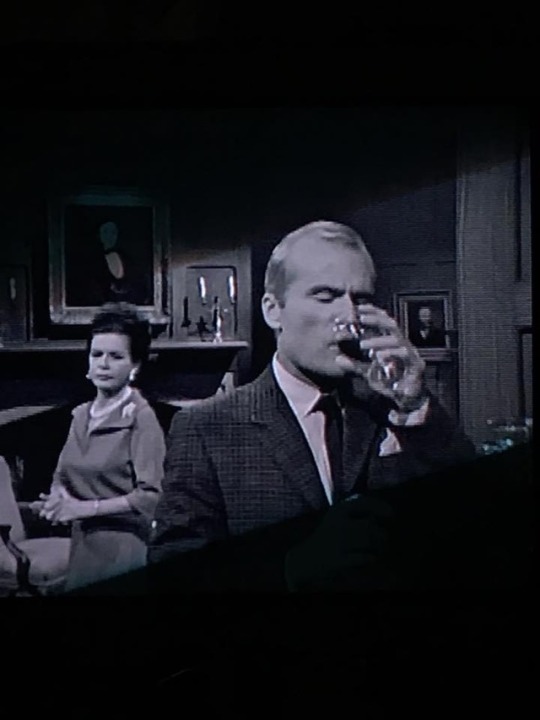
"Very well, I ~and~ my ghosts want a drink. My nerves are shot." We are watching all of Dark Shadows from episode 1, over the next...I don’t know...years? Louis Edmonds as Roger Collins.
#dark shadows#classic dark shadows#louis edmonds#roger collins#gothic#mystery#cult tv#original dark shadows#before barnabas#1966#gothic horror
15 notes
·
View notes
Text
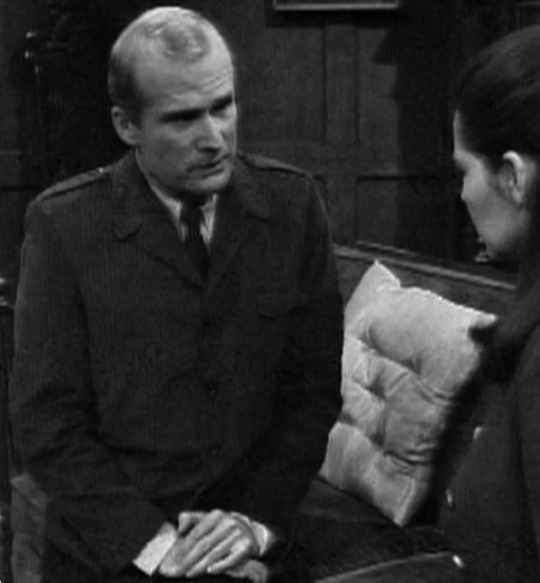

when you’re trying to convince your governess you definitely did not commit murder pretty please believe me 🥺
#LOUIS CHOICES HALL OF FAME#➤ roger collins. ┊ i and my ghosts want a drink.#he has to have the faith of the little lawful good governess.#he has to! if he’s lost the girl who endlessly forgives him — who wants to believe the best of him#stepping into Vicki’s confidence (and bedchamber) like it’s the confessional booth#god and his approval doesn’t matter here. just vic
9 notes
·
View notes
Text



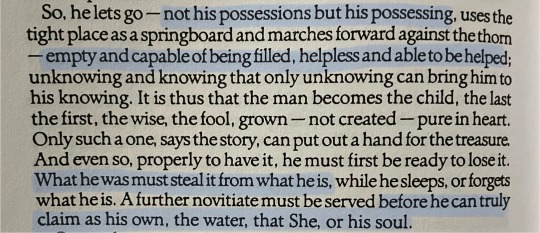
“The Youngest Brother,” from What the Bee Knows: Reflections on Myth, Symbol, and Story, P.L. Travers, first published in Parabola, 1979.
#INTERESTING Pamela.#what compelled me to pick this up off my shelf today. well I do not know. she did; I suppose.#since the story’s purpose must be served‚ who but himself is left to serve it?#➤ roger collins. ┊ i and my ghosts want a drink.
8 notes
·
View notes
Text
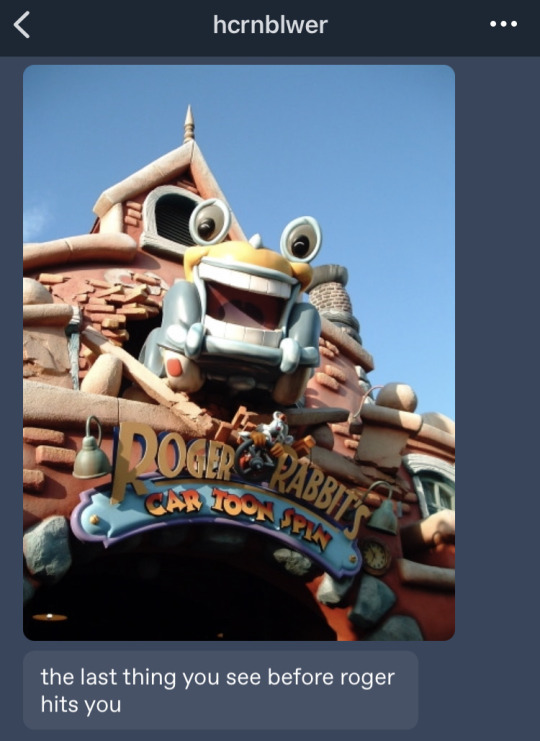
@hcrnblwer I CANT RENFKWLDLS
8 notes
·
View notes
Text
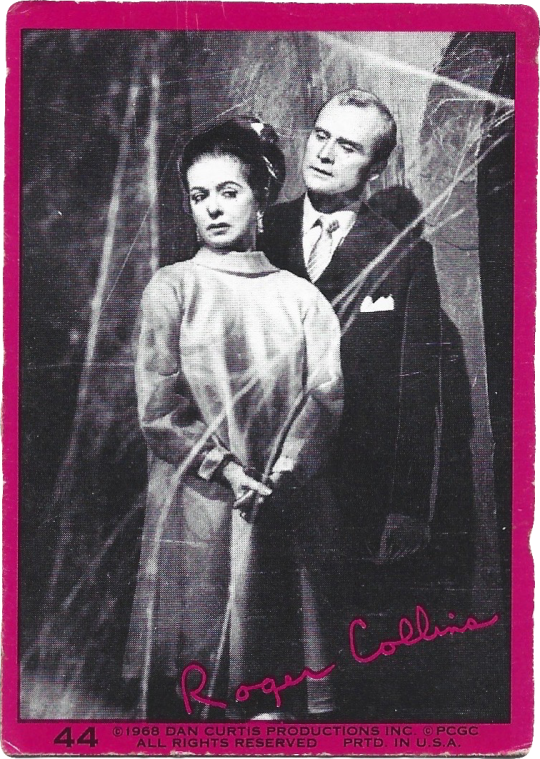

I drink to our ruined house
To the evil of my life
To our loneliness together
And I drink to you —
To the lying lips that have betrayed us
- Anna Akhmatova t. Katie Farris and Ilya Kaminsky
#i love um [checks smudged writing on hand] the bride of frankenstein and uh ... joe from accounting ?#➤ roger collins. ┊ i and my ghosts want a drink.#➤ elizabeth collins stoddard. ┊ i belong to the house. the house belongs to me.#➤ roger collins & elizabeth collins stoddard. ┊ how can i? these walls are my skin. this room is my heart. besides,i have a sister.#i tried to fix the text formatting but beta hates me,personally#so!#300 sweet sweet dpi babe
7 notes
·
View notes
Text
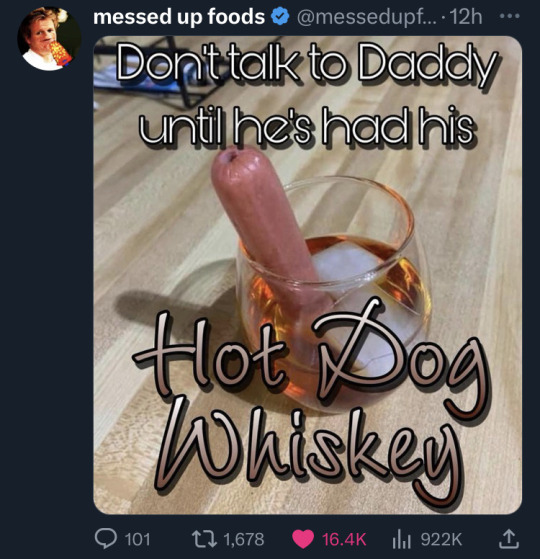
Roger
#Cold chicken sandwich and a glass of milk. It's better than caviar at this time of night.#➤ roger collins. ┊ i and my ghosts want a drink.
4 notes
·
View notes
Text
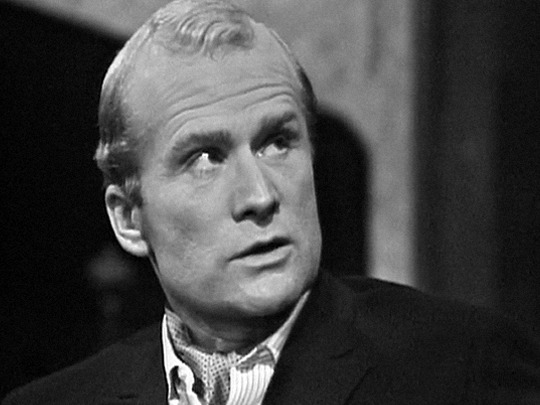
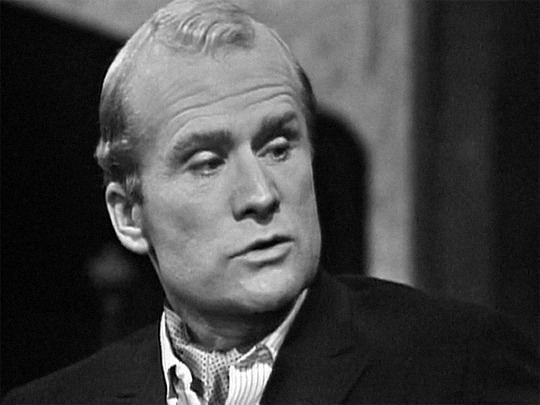
not arguing with a man who has long eyelashes whatever you say beautiful
#pretty boy :)#114.#➤ roger collins. ┊ i and my ghosts want a drink.#vicki saw him in his glasses & looking at her with those long eyelashes she said well i'm done with burke now i've decided.#i can't hurt roger :(
3 notes
·
View notes
Text
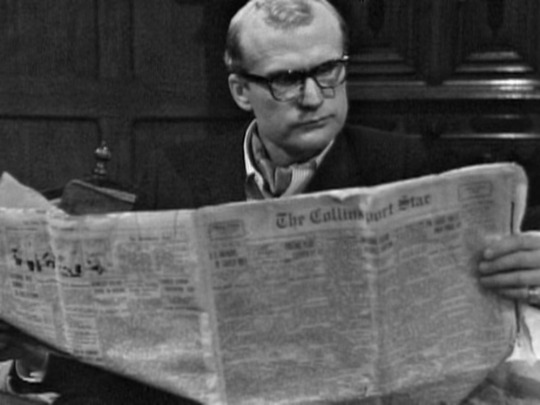
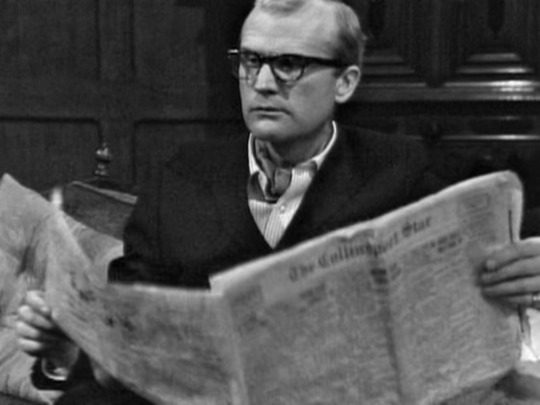

live roger reaction
5 notes
·
View notes
Text
thinking about coffee orders:
Victoria: something simple, soft, and sweet, but she’s not picky — she’d drink it black if served without sweetener available, and there’s no question of complaining if the barista gets her order wrong, she’s drinking that and tipping big anyway. her go-to is a regular old strong brew with a heavy helping of cream and sugar, but at a coffee shop she’s fond of iced lattes and a big pile of whipped cream. a shot of two of vanilla if she’s feeling especially lavish, but nothing to overwhelm the flavor.
Roger: coffee, black. when traveling abroad on business he’ll spice it up with an americano or a double shot of espresso. he’ll drink iced but only as a matter of summertime leisure, out on the beaches of the estate or the boat (if he’s not drinking something stronger, anyway, so let’s say before 11 am). on the average day, and particularly on the more stressful of them — which is most — he relies just as much on the heat on his hands, tongue, throat, to lend him a little bit of warmth.
Elizabeth: coffee, two sugars, and a splash of milk. she has a bad habit of leaving it sitting around and forgetting to drink it, so she’s very used to room temperature or reheated coffee. she prefers not to waste anything, so she’ll drink the leftover pot from the day before (before mrs johnson, anyway, who considers it sacrilege to serve day old coffee). never ever iced. she prefers tea, generally, as a matter of pleasure (earl grey by default, or something with floral infusions — in a modern setting she’d also be a fan of a SB chai), but coffee is all business, all bracing, and she prefers it just a little bit strong and bitter. the grounds she puts towards gardening in the greenhouse, or out on the estate.
#Carolyn will be having the frappajappajooza#hc tag#➤ roger collins. ┊ i and my ghosts want a drink.#➤ victoria winters. ┊ because she’s lost and lonely. because she looks in shadows.#➤ elizabeth collins stoddard. ┊ i belong to the house. the house belongs to me.
5 notes
·
View notes
Text
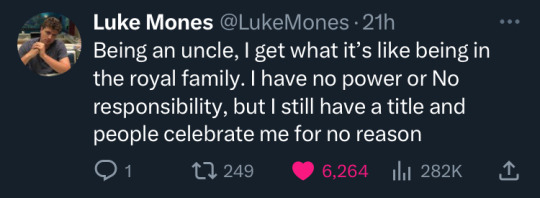
Rogercore
2 notes
·
View notes
Text
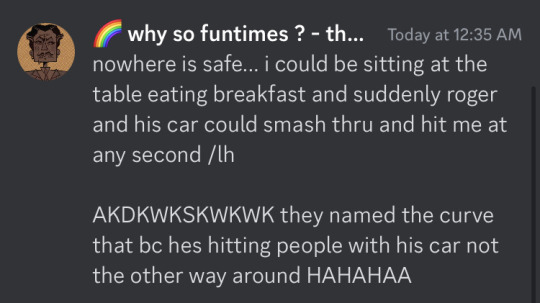
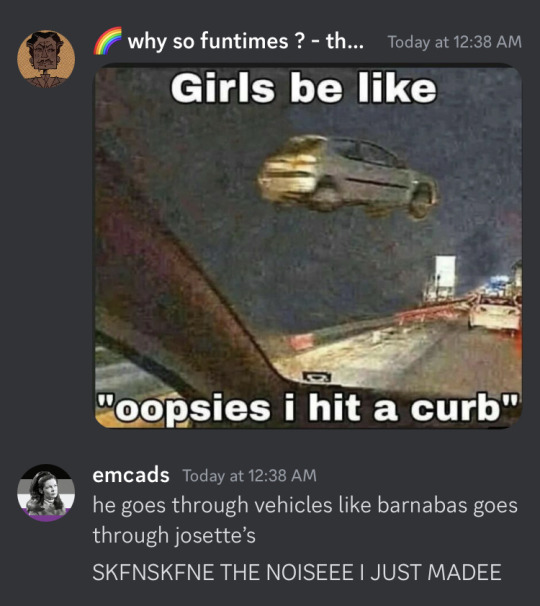
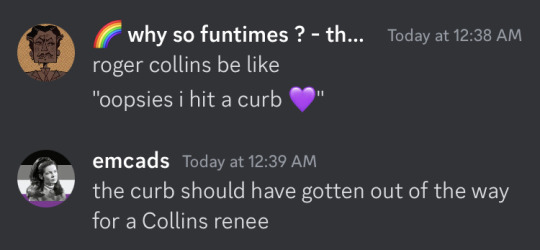
@devilagent EXPOSING ROGER’S DRIVING
#no progressive safe driver discount for this one#there’s only 14 people in this town because Roger mowed down all the pedestrians#➤ ooc. ┊ she’s nauseous,she’s hysterical,and she’s exhausted.#devilagent#➤ roger collins. ┊ i and my ghosts want a drink.
6 notes
·
View notes
Text
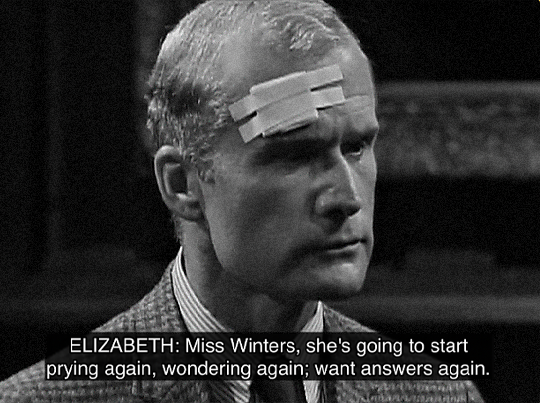

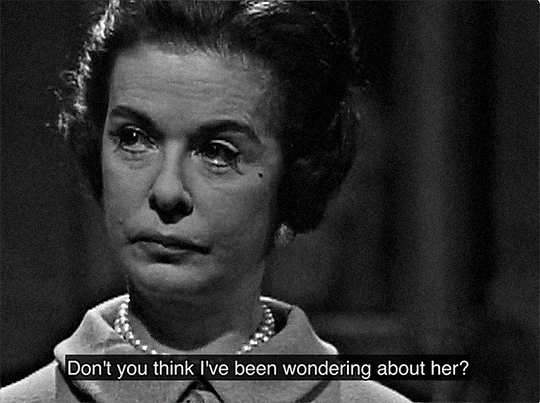
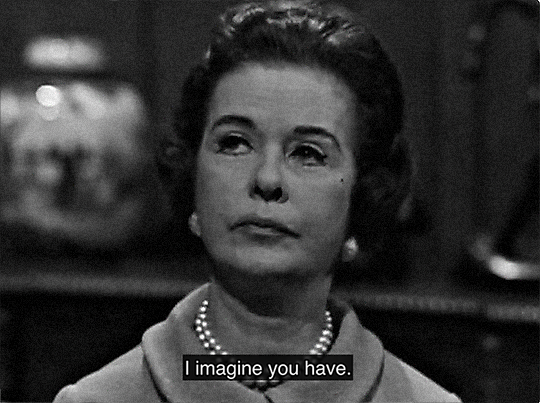
uh huh. yeah i bet.
#25.#➤ roger collins & elizabeth collins stoddard. ┊ how can i? these walls are my skin. this room is my heart. besides,i have a sister.#➤ elizabeth collins stoddard. ┊ i belong to the house. the house belongs to me.#➤ roger collins. ┊ i and my ghosts want a drink.#➤ victoria winters. ┊ because she’s lost and lonely. because she looks in shadows.#(not pictured)#this family makes me nuts. btw. if you even care
4 notes
·
View notes
Text
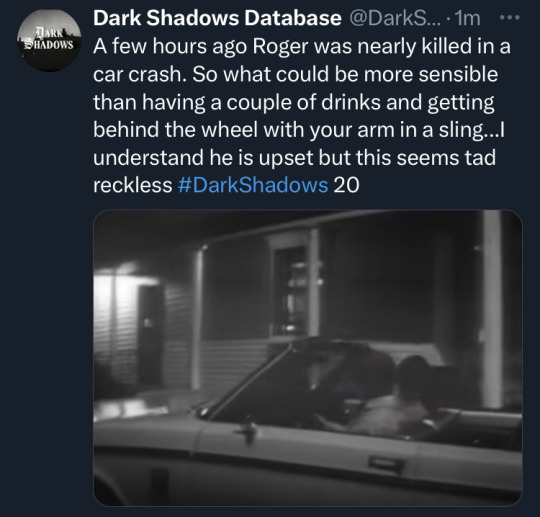
that’s him! that’s my boy! stupid!
#and with a passenger on top of everything else.#I mean v was not really in a position to be able to say no after his intense manipulation session but she had to be sitting there just.#how did I get here. yesterday I was in manhattan. today I am riding with an insane person. I’m going to die in the middle of nowhere Maine.#and for WHAT.#➤ roger collins. ┊ i and my ghosts want a drink.
3 notes
·
View notes
Text
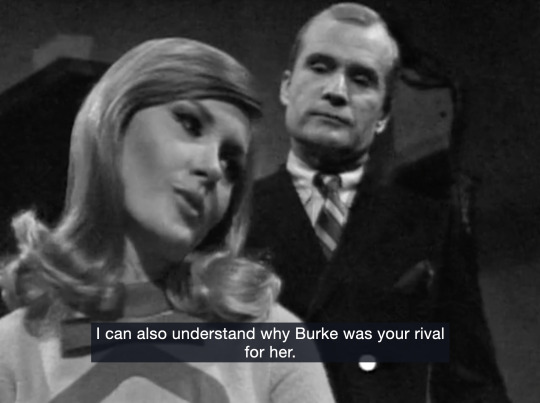
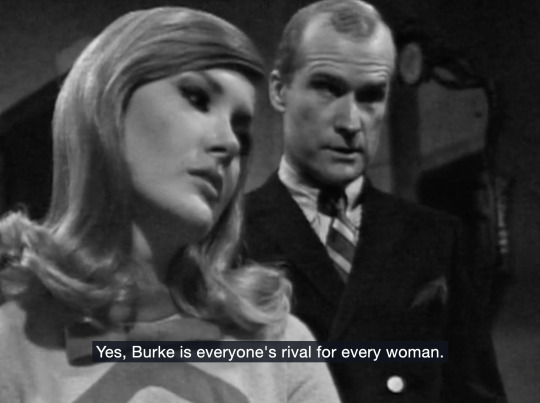
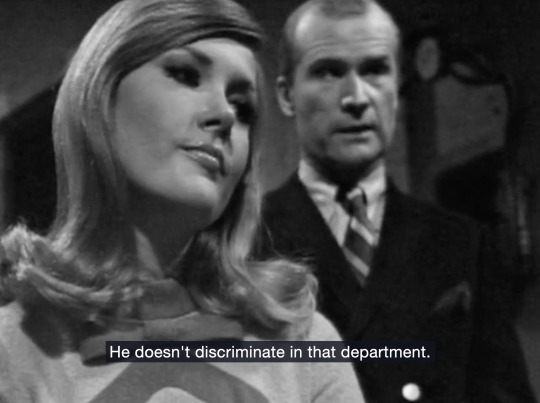
mmhmm.
#''the way you looked at burke devlin i'm sure you think he could take care of anything''#137.#➤ roger collins. ┊ i and my ghosts want a drink.#➤ re: carolyn stoddard. ┊ never the same girl twice.#➤ roger collins & carolyn stoddard. ┊ because we're not just an uncle and a niece. it's something else.#this convo is so. carolyn being jealous of her aunt (both in competition for burke and for her uncle)#either man who might be the father of her cousin. meanwhile she could pass for roger and laura's. incestors <3
2 notes
·
View notes
Text
roger needs like three separate cards i have to say. his tastes are discerning and always correct but wildly, wildly varied.
#people he marries and maybe (?) fucks: cunty evil women that want him and his whole family dead#people he has definitely canonically fucked: his mortal enemy Handsome Squidward Heathcliff that wants him and his whole family dead#people he wants to fuck and is constantly Jeff Blocked from: innocent corruptible governess that actually doesn't want him dead#(mostly. sometimes she thinks about it.) but nonetheless. manages to Imperil Him repeatedly.#➤ roger collins. ┊ i and my ghosts want a drink.
2 notes
·
View notes